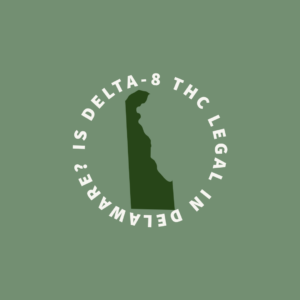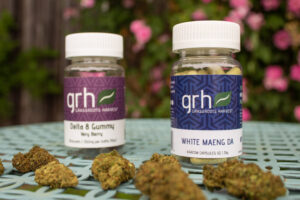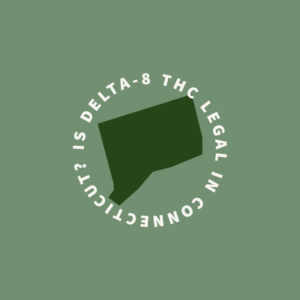A legal approach for getting high is by using Delta-8 THC, which is legal under federal law. But is it legal to use and sell in Virginia? Hemp-derived delta-8 THC foods and drinks are subject to stringent distribution and production regulations in Virginia. State officials have asserted that delta-8 is indeed illegal. They urge all sellers and producers to immediately discontinue the marketing, distribution, and production of delta-8 goods.
Is Delta-8 THC Legal In Virginia?
Delta-8 THC is legal in very specific circumstances in Virginia. However, due to the nature of the laws, most delta-8 THC products end up being illegal.
Cannabidiol (CBD) is the source of delta-8 THC, which is often put into edibles, extracts, and vape pen concentrates. CBD extraction is typically from hemp. However, delta-8 THC has come under doubt since it has effects similar to the most common cannabinoid found in marijuana, delta-9 THC.
The 2018 Farm Bill makes hemp legal throughout the United States. However, the DEA (Drug Enforcement Administration) still views delta-8 as a controlled substance. As a result, state governments are now responsible for determining how to handle this emerging category of products.
Delta-8 THC legality is happening in a similar patchwork fashion as marijuana. Some states have opted to sell it exclusively at marijuana dispensaries, where its potency, origin, and age of the purchaser can all be verified. In other places, delta-8 laws are the same as CBD or another hemp-derived substance.
In 2019, HB.1839, a landmark Virginia bill, legalized the cultivation, manufacturing, possession, distribution, sale, and use of hemp. This bill also approved the production, distribution, and sale of hemp-derived chemicals like Delta-8 THC.
Following this, the following year, the Drug Control Act of Virginia updated a more precise definition of hemp and marijuana. This state statute, Section 54.1-3401, clearly distinguished hemp from marijuana. The same happened in Section 54.1-3446, where all hemp-generated THC no longer comes under the list of Schedule l substances.
But, today, Delta-8 is regulated and restricted to use in beverages and foods following the changes made to the Code of Virginia’s 58.1-301 by House Bill-30.
Future Of Delta-8 In Virginia
Because he was concerned about minors’ availability to delta-8 products, Glenn Youngkin, Virginia Governor, added revisions against the substance into a marijuana act in 2023. Concerns about the impact of Delta-8 THC on children’s health have led to a crackdown by the attorney general of Virginia. Even right after the proposal from the attorney’s office, the VDACS (Virginia Department of Consumer Services) put pressure on the whole situation.
Under the proposed changes, selling of industrial hemp or food containing this substance and smoking hemp products is illegal if it matches the following-
- Contain THC (including delta-8/9/10) over 0.3%
- Include synthetic Delta-8
However, senators were inundated with concerns from advocates and business representatives on possible problems with social justice and access to therapeutics. Because of this, several hemp firms in the state are considering leaving and taking their employees with them.
So the senators rejected the governor’s changes and put this proposal on hold until 2023. And now, only those over the age of 21 who are registered patients at a medical marijuana dispensary are allowed to purchase and consume Delta-8 products.
Moreover, be cautious if you’re planning a trip to Virginia carrying foods, drinks, or associated consumables made of Delta-8. Delta-8 is typically from hemp, which has restrictions and regulations in Virginia. If caught in possession of or transporting delta-8 products, you risk arrest. If you want additional details, you should get in touch with VDACS.
Got questions? Let us know in the comments below!
Learn more about delta-8 THC here in this blog comparing cannabis compounds.



